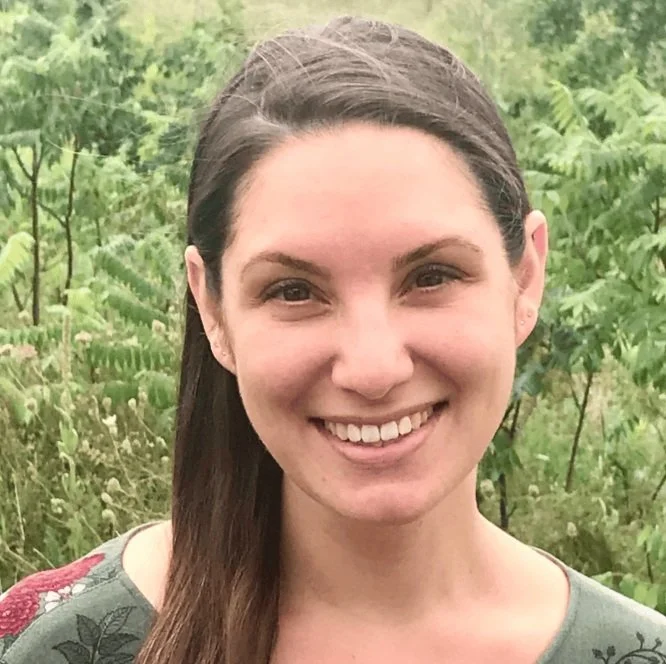Trauma Therapist in Toronto, Ontario
We help individuals in Toronto heal from the intense pain of trauma, enabling them to rediscover their inner strength and live without constant fear.
Caring, Trauma Therapists Are Here When You Need Them.
Living with trauma is really tough. The feelings you have are real and can be overwhelming. They can make you feel misunderstood and alone. It’s a deep hurt that affects every part of your life. It can disrupt your sleep, make it hard to connect with loved ones and can steal the joy from your daily activities. Flashbacks, anxiety, and nightmares may seem relentless, leaving you feeling trapped and hopeless. This doesn’t have to be your daily reality.
In our sessions, we'll create a safe space where you can share your feelings without judgment. Together, we'll work to understand your trauma. Next, we'll focus on teaching you practical tools so that you can manage your symptoms, making daily life more bearable. Finally, we'll set new goals and build healthy relationships, guiding you toward a future you can feel confident in. You deserve a life filled with joy and peace and as trauma therapists serving Toronto, we're here to help you find it.

What is PTSD? (Source: PsychHub)
What Does Trauma Feel like?
Constant anxiety, with a mind that never relaxes.
Deep sadness, like a heavy weight pressing down.
Intense anger, with irritability and quick outbursts.
Overwhelming fear, feeling unsafe even in familiar places.
Crippling guilt, blaming yourself for things beyond your control.
Suffocating shame, feeling unworthy and embarrassed.
Helplessness, unable to change your situation.
We Offer Virtual Therapy for Trauma to Toronto Residents
Living with trauma in Toronto can be especially hard because of the city's fast-paced and densely populated environment. The constant noise, crowded streets, and busy public transportation can amplify feelings of anxiety and overwhelm.
The high cost of living and competitive job market can add to financial stress. Even in a city with diverse communities, the feeling of isolation can be heavy. The hustle and bustle often leave little room for meaningful connections. On top of that, the harsh winters and long, dark days can exacerbate feelings of sadness and hopelessness.
We have therapists living across Ontario including Ottawa, Kenata, Mississauga, Midland, Barrie, and more . . .
The American Psychological Association (APA) recommends four therapy options for treating unhealed trauma or PTSD. Our diverse team of trauma therapists offers all these options and will suit you with your unique circumstances.
What is the Best Therapy for Trauma and PTSD?
Cognitive Behavioural Therapy (CBT)
Cognitive Processing Therapy (CPT)
Prolonged Exposure (PE)
Eye movement Desensitization and Reprocessing (EMDR)
How Does This Help Me?
Cognitive Behavioural Therapy (CBT) CBT helps you see how your thoughts and feelings influence your actions. By changing negative patterns, you can start to feel better and manage stress more effectively.
Cognitive Processing Therapy (CPT) CPT helps you deal with trauma by changing how you think about it. You'll learn to challenge and change negative beliefs, making it easier to move forward.
Prolonged Exposure (PE) PE involves safely confronting your trauma memories and fears until they no longer feel overwhelming. This gradually reduces anxiety and avoidance.
Eye Movement Desensitization and Reprocessing (EMDR) EMDR uses eye movements to help your brain process and heal from traumatic memories, making them less distressing over time.
Caring Support for Complex Trauma in Ottawa
When trauma or PTSD feels overwhelming, you deserve a safe and healing space. We offer a supportive environment where you can share your experiences openly and without judgment. Our caring therapists focus on building trust with you through consistent and compassionate care.
We don’t just sit there a listen, we empower you. We provide practical tools to help you manage your symptoms and guide you towards healthy self-care. If you need extra support, we’ll help you find the right resources. Healing is a journey, and we'll be here to guide you every step of the way towards a life that is not defined by the trauma you went through.
Learn more about CPT vs PE: Which Therapy is Right for You? and EMDR vs CBT therapy.

“Healing doesn’t mean the damage never existed. It means the damage no longer controls our lives.”
Book Your Free Consultation Today and Start Healing Today
Meet our Clinical Directors
Celissa Vipond (MSW) and Melissa Lindstrom (BSW) are caring registered social workers who started Virtual CBT Psychotherapy in 2021. They offer support to people in Toronto and across Ontario through online sessions.
Celissa and Melissa invite you to a free consultation to see if their clinic is a good fit for you. They both specialize in helping people with trauma or PTSD.
Click the button below to start your healing journey today.
Why Choose Virtual CBT Psychotherapy For Trauma Support?
Expert Online Trauma Therapy in Ottawa
We have a variety of trauma specialists to choose from. Our Clinical Directors will match you with the right therapist based on your symptoms and preferences.
You can learn about our social workers, registered psychotherapists and clinical psychologists.
We Are Experienced Trauma Therapists
Online trauma counseling is just as effective as meeting in person. That’s why we offer personalized support you can access right from your home.
Your Experience Will be Safe
Our therapists are trained trauma experts. We provide treatments that can help you feel better in as few as 8-10 sessions. Some people start feeling better even sooner, while others might need a few more sessions.
We Can Find the Right Trauma Therapist for You
Our psychotherapists are passionate about their work. They will create a safe space for you and support your recovery from past trauma. They will teach you coping strategies and help you heal from the inside out.

Meet our Trauma Therapists Serving Toronto
-

Celissa Vipond
RSW Psychotherapist
-

Melissa Lindstrom
RSW Psychotherapist
-

Alpar Szotyori
Psychotherapist
-

Emily MacQuarrie
Doctoral Student
-

Lauren Steinhart
Clinical Psychologist
-

Jessie Daniel
RSW Psychotherapist
-

Shahram Kavehsemnani
RN Psychotherapist
-

Catherine Sullivan
RSW Psychotherapist
-

Angela Hammond
RSW Psychotherapist
-

Jennifer O'Connor
Jennifer O’Connor
Psychotherapist
-

Chris Conboy
Registered Psychotherapist
Examples of Traumatic Events That Can Cause Harm to Your Mental Health
Traumatic events can vary widely, each deeply affecting mental health. Military combat, sexual assault, and physical assault are some of the intense experiences that can cause deep trauma. Childhood abuse, whether physical, emotional, or sexual, often leaves lasting scars. Serious accidents, like car crashes or industrial mishaps, are also common sources of trauma.
Natural disasters such as earthquakes, hurricanes, floods, or wildfires can be overwhelming, just like witnessing or being a victim of terrorist attacks. The sudden loss of a loved one can be deeply traumatic, and medical trauma from life-threatening illnesses or invasive procedures can also take a significant toll. In Toronto, and everywhere else, these events can lead to enduring emotional and psychological challenges.
Many other situations can cause someone to feel the deep, emotional pain of trauma. If any of these feels like you, it’s important to reach out.
You may also want to read Who Can Develop PTSD? and Childhood Trauma
Dealing with Trauma in High-Risk Professions
Working in high-risk jobs can frequently lead to trauma due to the challenging and often dangerous situations encountered. Professions such as military service, law enforcement, firefighting, and emergency medical services regularly place individuals in life-threatening scenarios, exposing them to traumatic events.
Witnessing severe injuries, deaths, and other distressing scenes can result in deep emotional scars. The ongoing stress and constant need to stay vigilant can lead to issues like PTSD, anxiety, and depression. Even healthcare, social work, and journalism can involve exposure to traumatic experiences. It’s crucial to have strong mental health support and effective coping strategies when working in a high-risk profession.
Learn more about nurses and PTSD, police officers and PTSD, and PTSD in first responders.
More Specific Resources about Trauma
What are the Three Main Types of Trauma?
Acute Trauma
Acute trauma happens when you go through one intense and shocking event, like being attacked or seeing a bad accident.
Trauma comes in various forms, but we can categorize it into three main types for better understanding.
Chronic Trauma
Chronic trauma is when you face stressful situations repeatedly over a long time. For example, if you're living in a war zone or dealing with long-term neglect.
Complex Trauma
Complex trauma means you've been through multiple traumatic events over a long period, often involving people close to you. This can include ongoing childhood abuse or long-term domestic violence.
Frequently Asked Questions About Trauma (FAQs)
-
Trauma happens when we go through very stressful, scary, or upsetting events that are hard to handle or beyond our control. It might be one event or something that happens over a long time.
Most of us will face something traumatic at some point in our lives, but we won't all react the same way. Trauma can happen to anyone at any age, and it can affect us even long after the event is over.
-
Trauma-informed care is important because it asks, "What happened to you?" instead of "What's wrong with you?" This way, we can understand your full life story, which helps us give you better care and support.
-
A trauma bond is a deep attachment an abused person feels for their abuser, especially in relationships with a cycle of abuse. This bond forms because, after each abusive event, the abuser shows love and regret, making the victim feel needed and safe. This cycle of hurt and comfort creates a confusing and powerful connection, making it hard for the victim to leave the abusive relationship.
-
Trauma is an emotional and physical response to stressful or harmful events, which can be single incidents, repeated experiences, or prolonged exposure. It includes acute trauma (one-time events), chronic trauma (repeated events), complex trauma (long-term exposure), and secondary trauma (indirect exposure). Understanding trauma helps in healing, and support from therapy can make recovery possible.





















